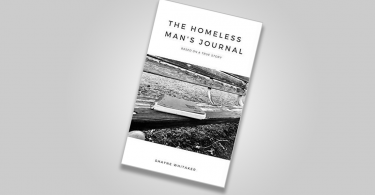Think of this as one big ol’ pep talk for anyone who needs to get up and get stuff done. Never mind your thoughts about not being good enough, or thinking that no-one will like your writing, or that nagging voice in your head which tells you that you can’t do it. Those thoughts and fears will still be there, and Gilbert tells us to hear them, but do it anyway. She describes the creative ideas we all have as ‘magic’, which is a lovely sentiment, don’t you think? They’re a certain type of magic that’s been bestowed upon your consciousness for you to do anything with – to draw with, sing about, and maybe to write about. Whatever you choose to do with it, it’s all yours.
Originality
Worried about your idea not being original? That’s fine. We’ve had over 2000 years of people before us; doing, thinking, creating, so of course someone somewhere would have thought along the same lines as you, and that’s okay. Liz says that even though you have an idea, you could “open the newspaper one day and find that somebody else has written your book, or directed your play”. This, she tells us, is a part of life and of living creatively. It’s a process that’s both harsh and unavoidable, yet teaches us that we must keep creating in order to let no-one else take our ideas.
[video:https://youtu.be/ZzJoY5pVPvo]In one particular section of the book, she describes her anguish at people referring to their piece of work as their “baby”, and this was one of my favourite parts. Her reasons not to do this are simple and logical; if it was your baby, something that you have figuratively given birth to, then of course you would not what to chop and change sections of it, to throw sections of it away or, heaven forbid, scrap the whole thing together simply because it’s just not working. She urges us to treat our work as what it is, a manuscript or a piece of music, that we give ourselves permission to change and let others adapt, in order for it to make it into the world, outside of your current creative space.
A brutal industry
I like that she doesn’t sugar coat the creative industry. She tells it like it is; that some critics/publishing companies/your friends won’t like your work, that it’s brutal, and that you’ll have one rejection letter after another. If you’re then too afraid that you have no talent or that others will judge or isolate you for your talent, then surely you won’t do anything with your life. She brutality claims that no-one cares what you’re doing, and what’s refreshing is that this is a good thing for us. That way, you can just blissfully carry on with what you’re doing, and others will do the same.
I urge anyone who’s thinking about becoming a writer or doing something in the creative industry to read this book.
Will you be reading the book? Let us know in the comments below!









